 In a ground-breaking shift that could herald a new era for women’s reproductive rights, Sri Lanka is on the brink of redefining its longstanding abortion laws.
In a ground-breaking shift that could herald a new era for women’s reproductive rights, Sri Lanka is on the brink of redefining its longstanding abortion laws.
Traditionally, abortion in the country has been strictly prohibited except when necessary to save the mother’s life, a stance enshrined in the Penal Code under Sections 303 to 307, which prescribe severe penalties of up to twenty years in prison or hefty fines for any violations. Yet, in practice, the harsh legal restrictions have not deterred women from seeking termination of unwanted pregnancies, with an estimated 658 clandestine abortions occurring daily and roughly 240,000 taking place annually, according to data.
Legal framework unchanged
The current legal framework, which remains unaltered for decades, forces women into perilous circumstances. Despite the Ministry of Health’s post-abortion care guidelines, established in 2015 to provide non-prosecutable medical care for complications, many women continue to delay seeking treatment for fear of discrimination, abuse, and even further legal consequences. Studies have shown that the majority of clandestine procedures occur in urban and semi-urban areas among married women, many of whom already have children and cite reasons such as closely spaced pregnancies, financial hardship, and employment abroad.
These unsafe practices have not only jeopardised the health of countless women but have also contributed significantly to the nation’s maternal mortality rate, with unsafe abortions accounting for as much as 10 to 13 percent of maternal deaths.
For decades, attempts to amend the punitive abortion laws initiated in 1995, 2011, 2013, 2017, and even as recently as 2022 have encountered fierce opposition from religious and conservative factions. Prominent figures from various faith communities argue that any relaxation of abortion regulations undermines the sanctity of life, while advocacy groups warn that such rigid restrictions continue to inflict irreparable harm on women’s health and autonomy.
Amid this landscape, a legal framework is currently being drafted that could mark a pivotal departure from past practices. This emerging policy specifically aims to grant women the right to decide on abortion in cases where fatal birth defects have been diagnosed, defects that cannot be treated or corrected medically. This significant reform proposal is seen as a pragmatic response to the heartbreaking reality many families face when confronted with a prognosis of inevitable neonatal death.
Modern human rights standards
Legal reform advocates, human rights organisations, and a growing number of health professionals are rallying behind the proposal. International bodies such as the World Health Organization and various UN treaty monitoring committees have consistently recommended that countries such as Sri Lanka update their abortion laws to reflect modern human rights standards. These bodies assert that ensuring access to safe and legal abortion is integral to protecting the highest attainable standard of physical and mental health, upholding women’s dignity, and ensuring non-discriminatory access to healthcare services.
However critics of the proposed legal changes remain vocal. Religious leaders and conservative lawmakers continue to warn that any easing of restrictions might signal a slippery slope toward broader legalisation of abortion, potentially eroding deeply held cultural values. Nonetheless, reform proponents’ counter that the current framework is both outdated and counter-productive, having failed to protect women from the dangers of unsafe, clandestine procedures while simultaneously contributing to preventable maternal deaths.
The draft legal framework is not an attempt to endorse abortion broadly but is rather a measured response to specific, tragic circumstances. It targets instances where fatal foetal abnormalities render a child’s survival impossible, thereby acknowledging that in such cases, continuing the pregnancy may cause further emotional and physical harm to the woman. By introducing this narrowly tailored exception, policymakers hope to forge a path that respects both life and the rights of women to make fully informed, autonomous decisions regarding their reproductive health.
“There is a growing shift in societal attitudes. There has been positive feedback on the current draft bill, signalling a change in public perception,” – President of the College of Community Physicians, Dr. Kapila Jayaratne
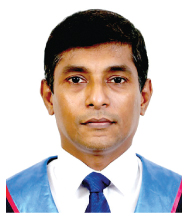
Dr. Kapila Jayaratne
This issue should not be labelled as abortion. The primary objective is to provide women with the right to decide whether to continue carrying a fetus that has been diagnosed with a fatal defect, one that is confirmed to result in death 100 percent of the time. This is not about terminating a viable pregnancy rather, it is about sparing the mother unnecessary suffering when the outcome is already predetermined.
In cases of high blood pressure, doctors may terminate a pregnancy if it poses a threat to the mother’s life. This is already happening. But, when a foetus is diagnosed with a fatal condition at around 18 weeks, current laws prohibit termination, forcing a woman to carry the pregnancy to full term, even when the baby has no chance of survival. This not only causes immense emotional and physical distress for the mother but also places a strain on healthcare resources.
This process is based entirely on the mother’s consent. If two medical experts confirm a fatal foetal defect, the woman should be given the option to terminate the pregnancy in a Government hospital under proper medical supervision. Contrary to concerns about potential misuse, strict regulations ensure that the procedure is only permitted in these specific cases.
Abortion, in the traditional sense, is now rare. Many women today resort to self-managed methods to terminate unwanted pregnancies, often using medication without medical supervision. This shift has significantly reduced maternal deaths due to unsafe abortions, a tragic reality that was far more common in the past.
Countries such as Nepal, Bangladesh, and Pakistan have taken steps to grant women greater autonomy over their reproductive choices. In these countries, even in the absence of fetal abnormalities, women have the right to terminate pregnancies if they choose. This reflects a strong belief in bodily autonomy, the right of a woman to make decisions about her own body.
However, in Sri Lanka, past attempts to introduce similar legal reforms have been met with resistance. A previous draft bill reached Cabinet level, only to be stalled due to concerns over religious and cultural sensitivities. In response, an all-religious conference was held, yet opposition remained.
Now, there is a growing shift in societal attitudes. There has been positive feedback on the current draft bill, signaling a change in public perception. This is not the work of a single individual. A large team and multiple institutions have contributed to this effort. The fact that there is now open discussion and some acceptance in society is an encouraging step forward.
“A woman should have the full right to decide the course of her own pregnancy. Her body, her life, her choice” – Human Rights Lawyer, Swasthika Arulingam,
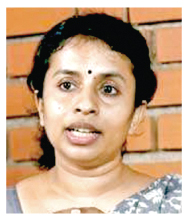
Swasthika Arulingam
Sri Lanka’s National Women’s Policy explicitly states that women should have the right to make decisions in difficult situations particularly in cases of rape and coercion by loved ones. This policy recognises that women should be granted autonomy in such critical matters. However, the deeply rooted religious principles across all faiths in Sri Lanka act as barriers to women’s rights. When it comes to pregnancy, a woman is denied the right to make decisions about her own body. Religious beliefs have effectively blocked these rights, leaving women without legal or social support.
For years, various legal frameworks regarding abortion have been debated, but the lack of a proper legal system has forced many women to resort to unsafe, clandestine procedures. These rushed, unregulated abortions pose severe risks to a woman’s physical and mental health, leading to lasting medical complications.
Religion continues to play a dominant role in shaping policies on this issue. The termination of a pregnancy is often equated with murder through religious interpretations. However, we must first consider the life and well-being of the woman carrying the foetus. The foetus develops within her body shouldn’t her life take precedence? In some cases, a woman may suffer lifelong consequences due to the complications of childbirth, yet little attention is given to her suffering. It is illogical to discuss the sanctity of a fetus with fatal disabilities while ignoring the urgent need to empower the woman carrying it.
At its core, this is not just a women’s rights issue. It is a matter of health, both physical and mental. A comprehensive legal framework is essential to address this problem. Laws and policies must be reformed to protect women’s health and autonomy. But legal reforms alone are not enough. We must challenge societal and religious norms that continue to strip women of their right to make personal decisions. Ultimately, a woman should have the full right to decide the course of her own pregnancy. Her body, her life, her choice!
“Legal reform alone is not enough, comprehensive sex education is also essential” – Team Leader of the Triage and Information Unit at the National Hospital – Pushpa Ramyani De Soysa,
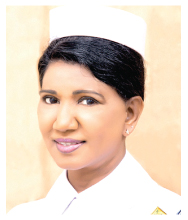
Pushpa Ramyani Soysa
In Sri Lanka’s deeply rooted religious and cultural context, abortion has long been considered inappropriate. Religious teachings have shaped societal norms, instilling a sense of self-control and moral responsibility. Such rules were created to guide individuals away from making irreversible mistakes, categorising certain acts as sins to encourage ethical conduct. However, there are circumstances where self-control alone is not a viable solution, such as in cases of rape or sexual violence. In such instances, a woman should have the fundamental right to make decisions about her own body and future.
Sexual violence, including gang rape, is unfortunately not uncommon in Sri Lankan society. When a woman is forced to give birth as a result of such an ordeal, she and her child often face harsh societal stigma. The child may be labelled illegitimate, and the mother may endure relentless social discrimination. In such cases, the woman should be granted the autonomy to decide whether to continue the pregnancy. Restricting this choice only adds to the suffering inflicted upon victims, further alienating them from the very society that should offer them support.
Beyond this, the criminalisation of abortion has fuelled a dangerous rise in clandestine abortions, posing severe health risks to women. With no legal alternatives, many women resort to unsafe procedures, leading to serious medical complications, lifelong disabilities, or even death. In some tragic cases, failed abortions have resulted in infants being born with severe disabilities due to botched procedures. These situations highlight the urgent need for a legal framework that prioritises women’s health and well-being.
However, legal reform alone is not enough, comprehensive sex education is also essential. Many Sri Lankans lack proper knowledge about sexuality and reproductive health, leading to preventable issues such as unplanned pregnancies and unsafe abortions. Schools must incorporate mandatory sex education to empower young people with the knowledge they need to make informed decisions. In Sri Lanka, conversations about sexual health remain taboo, but open discussions and proper education could prevent many of the problems society currently faces.
“From the Buddhist viewpoint, the act of abortion cannot be fully justified, as it goes against the fundamental principle of preserving life,” – Ven. Akmeemana Dayarathana Thera
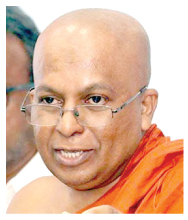
Ven. Akmeemana Dayarathana Thera
In Buddhism, the intentional taking of life is unequivocally considered a harmful act. Ven. Akmeemana Dayarathana Thera said that when an abortion is performed, it involves the removal of an embryo, which, according to Buddhist belief, possesses a soul. As such, intentionally terminating that life is viewed as a bad deed. In Buddhism, a person’s future is shaped by their actions, the good and bad deeds they perform throughout their lifetime. These deeds determine one’s karma, and the individual must bear the consequences of their actions, for no one has the ability to change their karma.
The religious perspective on abortion is clear. It is an act that goes against the ethical principle of non-harming.
However, the discussion becomes more complex when examined from the perspective of modern legal frameworks, particularly in Western countries where abortion is permitted under specific laws and regulations. These laws are put in place to address a variety of social and medical factors, providing room for abortion under circumstances such as risk to the woman’s health or cases of unwanted pregnancies.
There are situations where abortion might be considered, particularly in cases where the pregnancy results from an unwanted relationship or an unintended consequence. For instance, a young girl who becomes pregnant could face significant emotional, psychological, and social consequences. The impact of such an event could extend to her entire family, leading parents to make difficult decisions. In these instances, abortion may be seen as a justified option from a social and medical standpoint.
While legal systems may permit abortion under certain circumstances, the Buddhist stance remains firm. From a religious perspective, abortion is an evil act. Even though the legal system may provide justification in specific cases, Buddhism views the intentional termination of life as a serious moral wrongdoing.
This creates a clear divide between legal justification and religious ethics. In cases where a woman’s health is at risk, or where the pregnancy was a result of coercion, abortion may be deemed necessary from a medical and legal perspective. However, from the Buddhist viewpoint, the act of abortion cannot be fully justified, as it goes against the fundamental principle of preserving life.
“In cases where abortion is medically advised, religion should not interfere with the doctor’s recommendations,” – Ven. Galkande Dhammananda Thera
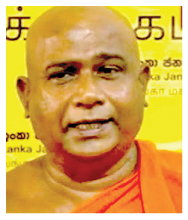
Ven. Galkanda Dammananda Thera
In certain circumstances, difficult decisions must be made for the greater good. Just as society takes necessary measures to suppress the spread of dengue, even though it may involve difficult actions, similarly, decisions regarding abortion may also need to be made in the best interest of individuals and society. From a Buddhist perspective, although the destruction of life is viewed as a sin, there are exceptional situations where such actions may be considered necessary for the well-being of all involved.
Particularly in situations involving medical necessity or significant personal hardship, decisions surrounding abortion should be guided by compassion, not hatred.
If the intent is to improve the life of the woman involved, without any animosity towards the unborn child, such decisions should not be viewed negatively. He said that the condition of the pregnant woman, including any medical reasons, must be taken into account, and decisions should be made with careful consideration of her health and future.
When it comes to the complexities surrounding cases like pregnancies resulting from rape the woman’s emotional, physical, and psychological well-being must be prioritised. The trauma of such an event can have long-lasting effects, and the decision to terminate a pregnancy in these cases may be seen as an act of compassion, aimed at preventing further harm and suffering to the woman.
In matters concerning physical health, the decisions made by qualified medical professionals should be respected. In cases where abortion is medically advised, religion should not interfere with the doctor’s recommendations. The focus should be on the compassionate and thoughtful consideration of each individual situation.
There must be a compassionate and pragmatic approach to the issue of abortion, one that takes into account the unique circumstances of each case. While the sanctity of life is a fundamental tenet of Buddhism, in some instances, decisions made out of kindness and concern for the well-being of individuals may be necessary and justifiable. The ultimate goal should always be to alleviate suffering and promote the welfare of all.






